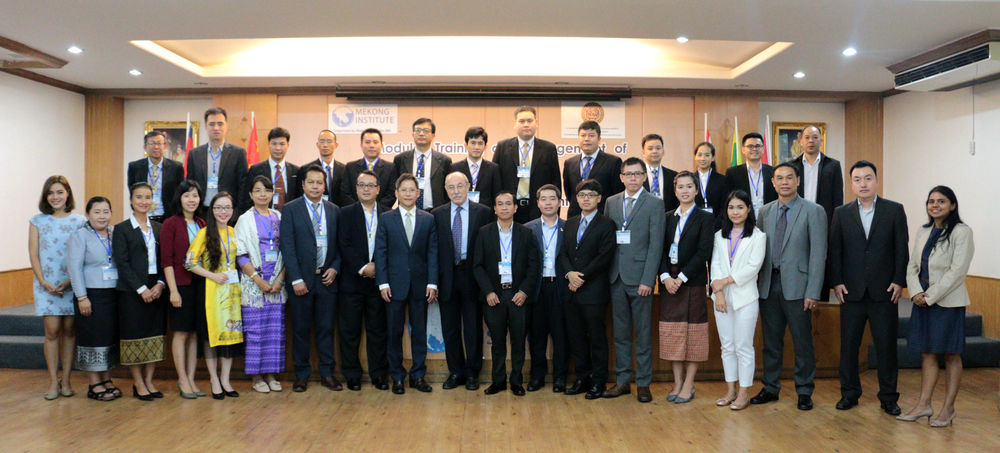Khon Kaen – Mekong Institute (MI) successfully completed a one – week modular training on “Management of Special Economic Zones (SEZs) in Lancang – Mekong countries” on September 24 – 28, 2018 at its residential training center, Khon Kaen, Thailand. The training program is part of the three – year project on “Joint Development of Cross – Border Economic Zones (CBEZ)” funded by Lancang – Mekong Cooperation Special Fund (LMCSF) in coordination with Ministry of Commerce (MoC) Thailand.
A total of 26 participants attended the training program, representing government ministries and agencies working on the management of SEZs, SEZ offices and private companies from Cambodia, China, Lao PDR, Myanmar, Thailand and Vietnam (CCLMTV). The participants included Council for Development of Cambodia (CDC), Office of the National Economic and Social Development Board (NESDB) – Thailand, central ministries of commerce, finance, industry and trade, natural resources and environmental conservation, provincial departments such as commerce, foreign affairs, industry and trade, industry council, representatives and officials of SEZs and private companies involved with SEZs.
The training program aimed to enhance participants’ knowledge on the effective implementation and management of SEZs and CBEZs. There were also sessions to enhance participants’ capacities on various issues related to management of SEZs (e.g. strategies, policies and practices, institutional and governance issues, social and economic impact). Finally, the training program provided opportunities for the participants to learn and share knowledge and experience regarding the management of SEZs / CBEZs in the Lancang – Mekong countries.
For the purpose of “Knowledge Transfer” in practice, the participants jointly developed action plans (APs) on organizing national workshops / trainings in their respective countries. APs aim to transfer through the participants the new ideas, knowledge and learning points, which they acquired during the training, to related stakeholders at national level. APs are implemented in October – December 2018 with the support and assistance provided by a team from MI Trade and Investment Facilitation (TIF) Department. In addition, a Synthesis and Evaluation (S&E) Workshop is scheduled to be organized at MI in December 2018, in which participants should report the results of APs implementation in their respective countries.
During the training program, the preliminary results on “Joint Study and Survey of Special Economic Zones (SEZs) and Cross – Border Economic Zones (CBEZs) to Match Complementary SEZs and Identify Prioritized Areas” were also shared and discussed.








